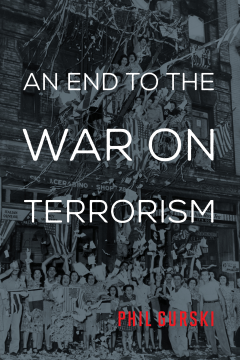
Additional Information
Book Details
Abstract
Why are we still at ‘war’ with terror 16 years after 9/11? This book will discuss what we have collectively done well, what we have done poorly, what we have yet to try and how we get to the point where terrorism does not dominate public discourse and cause disproportionate fear around the world.
This book looks at a variety of approaches and responses to international Islamist extremism, ranging from military and security/law enforcement action to government policies, community measures and religious efforts, with a goal to determining what has worked and what has not. The examples are drawn largely from the West but the book’s scope is global.
Key features:
- Written in a clear, non-academic style
- Uses recent events to explain terrorism
- Is wide-ranging and ‘ex-practitioner’ based
In this small book, Phil Gurski provides a concise and incisive discussion of the big issues in the “war on terrorism”. Drawing on his long service as an analyst and a sound appreciation of scholarship, he provides a highly accessible, realistic, and informative survey of the strengths and weaknesses of the diverse responses to the threat by Western states.
Lorne L. Dawson, Director of the Canadian Network for Research on Terrorism, Security, and Society
Phil Gurski served for more than 30 years as an analyst in the Canadian intelligence community. In 2001 he joined CSIS where he was a strategic analyst, specializing in homegrown Al Qaeda-inspired terrorism and radicalization to violence. In 2013 he moved to Public Safety Canada as a Senior Strategic Advisor on Canada’s Countering Violent Extremism policy.
Gurski is sketching a realistic path to end the war on terrorism. Amidst the abundance of literature on (counter)terrorism, Gurski is adding a rare but insightful piece to the debate: personal experiences of counterterrorism professionals. Reading Gurski means learning to defeat concrete threats and to accept the phenomenon of terrorism as part of civilisation.
Michael Kowalski, Chairman of Netherlands Intelligence Studies Association
Phil Gurski has studied and countered terrorism for most of his adult life, first as a Canadian intelligence official, now as an esteemed commentator. In this book he condenses his knowledge and expresses his views, without pulling punches but in a constructive way, over two decades of War on Terror. Highly informed common sense for experts and laypeople alike.
Lorenzo Vidino, Director, Program on Extremism, George Washington University
Table of Contents
| Section Title | Page | Action | Price |
|---|---|---|---|
| Cover | Cover | ||
| Half Title | i | ||
| Title Page | iii | ||
| Copyright Page | iv | ||
| Dedication | v | ||
| Contents | vii | ||
| 1 Why We Should Not See Terrorism Primarily as “War” | 1 | ||
| 2 The Role of Intelligence and Law Enforcement in Counter-terrorism | 39 | ||
| 3 Government: Laws, Policies, and Outreach Programs | 77 | ||
| 4 Community Engagement: From Academics to Religious Leaders to Technology Companies to Citizens | 113 | ||
| 5 The Problem with Counter-narratives | 129 | ||
| 6 Does Islam Have a “Problem”? Does the Islamic World? | 147 | ||
| 7 Conclusion: How Does Terrorism End? | 161 | ||
| Afterthought | 167 | ||
| Appendix | 169 | ||
| Index | 173 |
